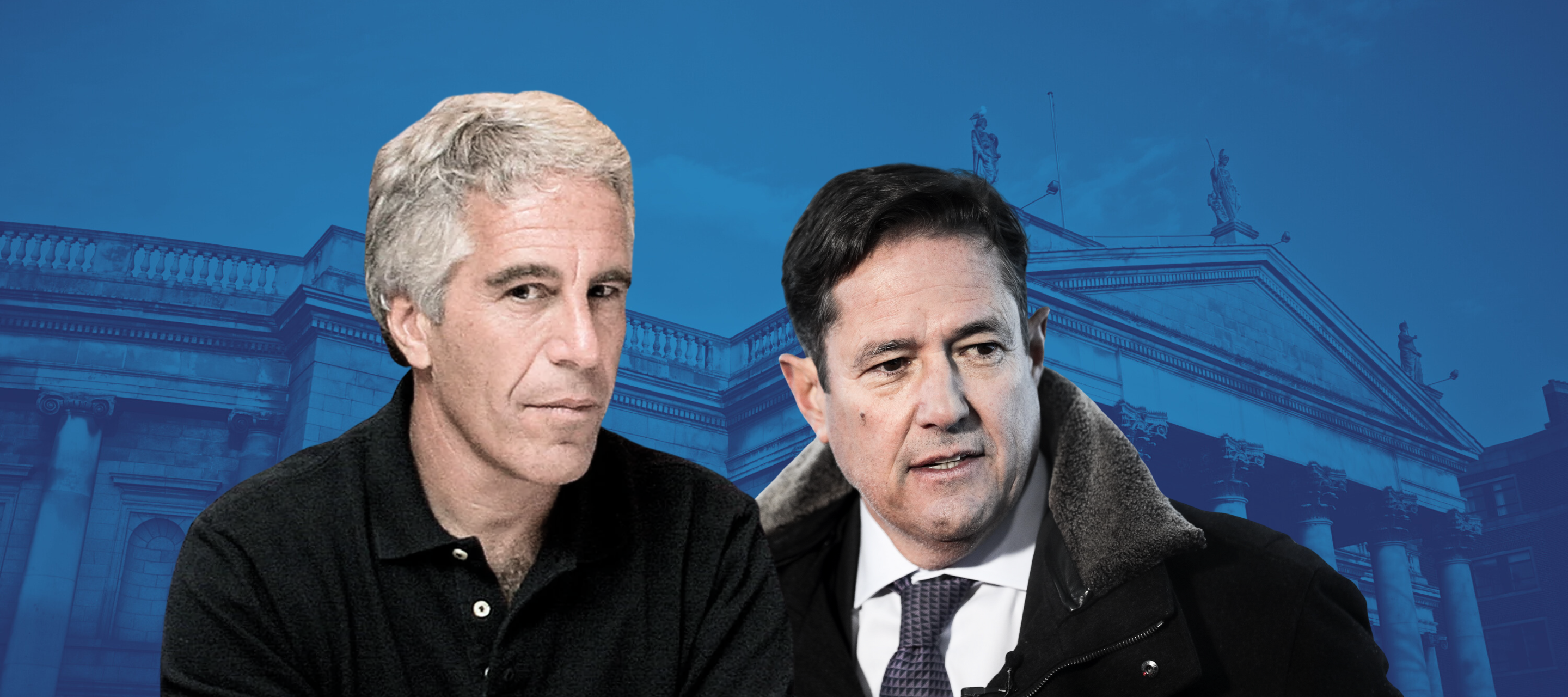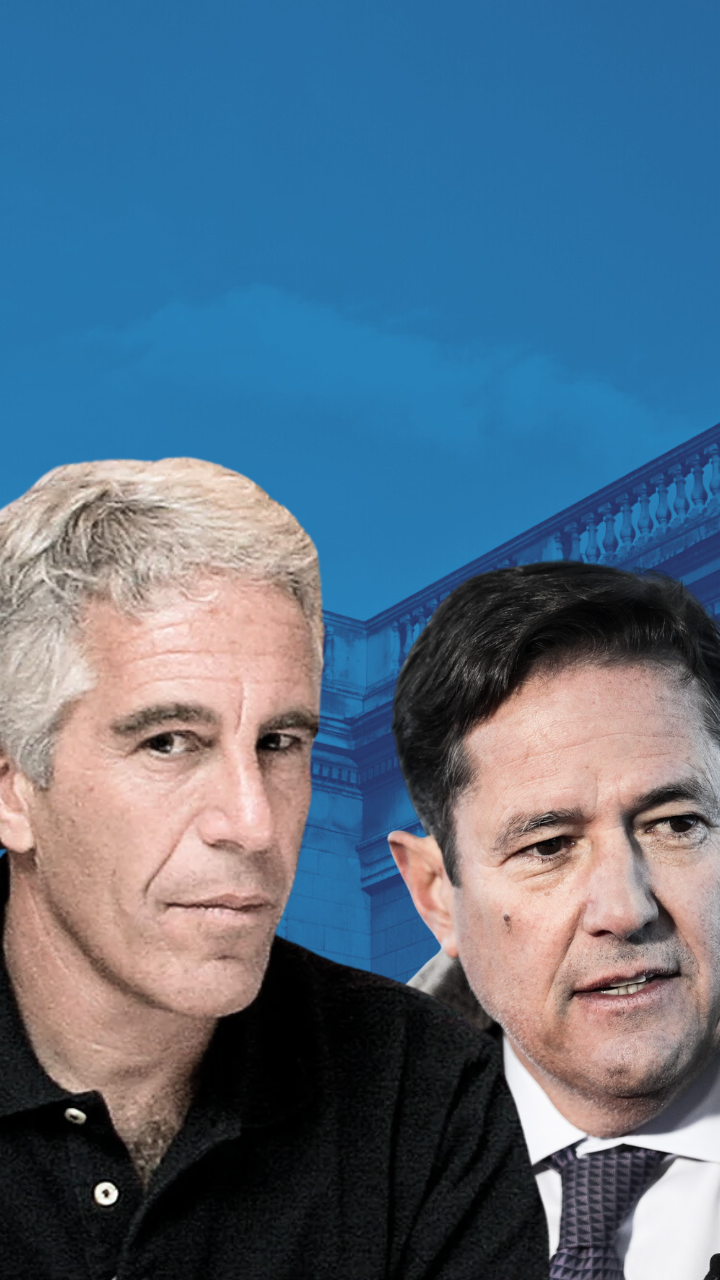There’s a theory floating around that Jeffrey Epstein may have played a role in the 2008 financial collapse. At first glance, it sounds absurd. But when you dig deeper into Epstein’s banking relationships—particularly with JP Morgan—it begins to look far less implausible.
This isn’t just a story about Epstein’s crimes. It’s about how America’s largest banks—supposed guardians of financial integrity—were complicit in funding, protecting, and even benefiting from his trafficking network. It’s about how powerful people, with access to billions of dollars, insulated themselves from accountability while ordinary people paid the price in both the financial crash and in the human suffering of Epstein’s victims.
Epstein and the Bankers
Epstein first became a JP Morgan client in 1998. At the time, he had already visited the Clinton White House 27 times and was expanding his trafficking network into a global enterprise. The bank’s CEO, Douglas “Sandy” Warner, reportedly introduced Epstein to Jes Staley, then a rising star at JP Morgan. Warner allegedly described Epstein as “one of the most connected people in New York.”
What followed was a relationship that blurred the line between banking and conspiracy. Epstein didn’t just park his money at JP Morgan—he became one of its most valuable “producers.” He referred an extraordinary list of billionaire clients to the bank: Bill Gates, Sergey Brin, Larry Summers, Mortimer Zuckerman, Leon Black, Glenn Dubin, Thomas Pritzker, and even politicians like Prince Andrew and former Israeli Prime Minister Ehud Barak.
According to court filings, by 2011 Epstein was considered JP Morgan’s single biggest source of new private banking business. Brin’s relationship alone brought the bank more than $4 billion. This was not the profile of an “ordinary” client. This was partnership.
The Hot Tub Emails
While Epstein was serving his lenient prison sentence in Florida for soliciting a minor, Jes Staley was still visiting his private island. In November 2009, Staley sent Epstein a glowing email:
“When all hell breaks loose and the world is crumbling, I will come here and be at peace. Presently, I’m in the hot tub with a glass of white wine. This is an amazing place. Truly amazing. Next time we’re here together. I owe you much and I deeply appreciate our friendship. I have few so profound.”
The emails between the two are chilling. In 2010, Staley wrote: “That was fun. Say hi to Snow White.” Epstein replied: “What character would you like next?” Staley responded: “Beauty and the Beast.”
Epstein, of course, routinely sent Staley catalogs of photos of underage girls. And yet, Staley was no rogue banker. He was the CEO of JP Morgan Asset Management, the arm responsible for Epstein’s accounts.
The Money Trail
By 2006, Epstein was withdrawing between $40,000 and $80,000 in cash every month. In one year, he pulled out $750,000 in cash. Court filings show at least $9 million in suspicious transfers and withdrawals linked to women and girls—including more than 20 identified trafficking victims.
Internal JP Morgan memos flagged Epstein’s accounts as “high risk” as early as 2002. In 2006, a “rapid response” team recommended he be classified as such because of his $32 million balances and massive cash withdrawals. In 2011, an internal email admitted the bank was keeping Epstein on solely due to Staley’s personal relationship.
Despite this, JP Morgan maintained at least 55 accounts for Epstein, worth hundreds of millions. And even after officially cutting ties in 2013, the bank continued processing payments to women and girls on his behalf—over $1.1 million in transfers, including $320,000 to new recipients who had no prior banking history.
Epstein and the Crash
Epstein’s ties to Wall Street weren’t just personal. They may have shaped the 2008 financial crisis. His old firm, Bear Stearns, collapsed spectacularly during the subprime mortgage meltdown. JP Morgan acquired it for pennies on the dollar, consolidating its power.
At the same time, Epstein’s referral network and private banking operation at JP Morgan deepened. Court filings suggest that Epstein’s relationships with Silicon Valley billionaires and hedge fund titans generated billions in profit for the bank during one of the most volatile financial periods in history.
In other words: while ordinary people lost homes, savings, and pensions, Epstein and JP Morgan were thriving together.
The London Whale and the Cover-Up
What ultimately severed Epstein’s official ties to JP Morgan wasn’t morality—it was the 2012 “London Whale” scandal. A trader named Bruno Iksil racked up $6.2 billion in losses through reckless derivatives bets. Regulators cracked down hard, forcing JP Morgan to overhaul its compliance systems.
In the process, Epstein’s accounts became too radioactive to ignore. Jes Staley was asked to resign in 2013, though Epstein quickly helped him land a new job at BlueMountain Capital. Mary Erdoes, who oversaw the private bank, pretended to cut ties with Epstein—while continuing to quietly accept his referrals until as late as 2019.
Complicity, Not Ignorance
The idea that JP Morgan was unaware of Epstein’s crimes is absurd. By the bank’s own admission, they processed over $1 billion in suspicious transactions linked to Epstein. The U.S. Virgin Islands, which sued JP Morgan, accused the bank of a 16-year cover-up.
And yet, accountability has been elusive. JP Morgan settled lawsuits with massive payouts, then turned around and sued Jes Staley as a scapegoat. CEO Jamie Dimon, one of the most powerful men in global finance, dismissed it all as “the stupidest and most embarrassing situation I have ever been a part of.”
But in reality, the scandal may have saved Dimon. Without the London Whale drawing regulatory scrutiny, JP Morgan might have continued handling Epstein’s accounts up to his 2019 arrest. The fallout could have been catastrophic.
A Dangerous Silence
The Epstein-JP Morgan story is about more than one predator or one bank. It exposes how intertwined Wall Street is with the political, social, and even criminal elite. Epstein was not a “lone wolf.” He was a node in a global network of power, wealth, and abuse.
Mainstream media has largely avoided telling this story in full because banks like JP Morgan are too powerful. They fund governments, underwrite corporations, and—crucially—control information.
The evidence points to complicity, partnership, and cover-up. Epstein and JP Morgan were integral to one another’s success. One provided trafficking, connections, and referrals. The other provided banking, protection, and legitimacy.


